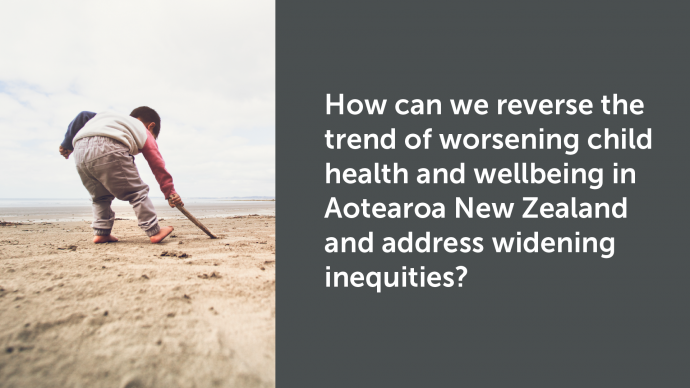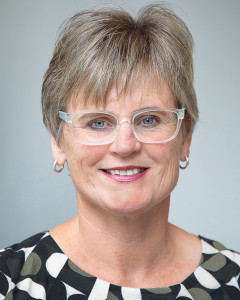Expert perspective: Professor Rachael Taylor FRSNZ

Professor Rachael Taylor FRSNZ, a researcher of childhood obesity and sleep, warns that if we don't co-ordinate better to reverse the trend of worsening child health and wellbeing, it will have far reaching consequences for our nation.
Ensuring our tamariki achieve the best start in life is paramount for improving the health and wellbeing of all in Aotearoa. Unfortunately, we are not doing this. Our child health statistics are worsening in many areas and inequities are widening. Māori and Pasifika children and those living in less advantaged circumstances are disproportionately affected. The additional burden of disease, particularly in terms of respiratory conditions, rheumatic fever and mental health issues, adds considerable stress for families and increases the risk of chronic conditions in adulthood.
Not ensuring that our children are as healthy as they can be influences the health, wealth, wellbeing and future economic prosperity of Aotearoa as a nation.
Improving health and wellbeing for all requires significant government investment alongside all the wonderful work that many communities and organisations do to support whānau. While the current governmental focus on improving immunisation rates is laudable, we need to invest more in other essentials like warm and dry housing, access to sufficient good quality food at a reasonable price, and a safe environment to learn, play and grow. We need more and better co-ordination between government and non-governmental agencies who have the remit of helping children and their families. Wraparound care across organisations who talk to each other will produce better outcomes for our children and provide a foundation for long-term health and wellbeing.
While Aotearoa’s Integrated Data Infrastructure (the large research database held by Statistics New Zealand) is the envy of many countries, we need to ensure that interventions, whether at a local or national level, are appropriately evaluated to determine their impact. Such monitoring will allow pivoting of resources to those strategies which prove to be more effective. Evaluation should also include analysis of cost-effectiveness to ensure we are spending our limited resources on the areas that give the most benefit for the least amount of investment. Improving our research infrastructure for those working directly with children and families will also allow future research questions to be more easily incorporated into routine care and practice.
‘Ahakoa he iti he pounamu – although it is small, it is a treasure’. We have a crucial window of opportunity to reduce inequities and improve child health early in life leading to long-term and cumulative benefits for individuals, communities and Aotearoa as a whole."
Published August 2025
 Rachael Taylor FRSNZ is a Research Professor who holds the Karitane Chair in Early Childhood Obesity at the University of Otago and is Director of the Edgar Diabetes and Obesity Research Centre. Her work ranges from developing and validating objective measures of lifestyle behaviours, to mechanistic studies determining how one behaviour influences another, to large randomised controlled trials. She is interested in developing novel and innovative ways of ensuring tamariki and rangatahi live happy and healthy lives.
Rachael Taylor FRSNZ is a Research Professor who holds the Karitane Chair in Early Childhood Obesity at the University of Otago and is Director of the Edgar Diabetes and Obesity Research Centre. Her work ranges from developing and validating objective measures of lifestyle behaviours, to mechanistic studies determining how one behaviour influences another, to large randomised controlled trials. She is interested in developing novel and innovative ways of ensuring tamariki and rangatahi live happy and healthy lives.
